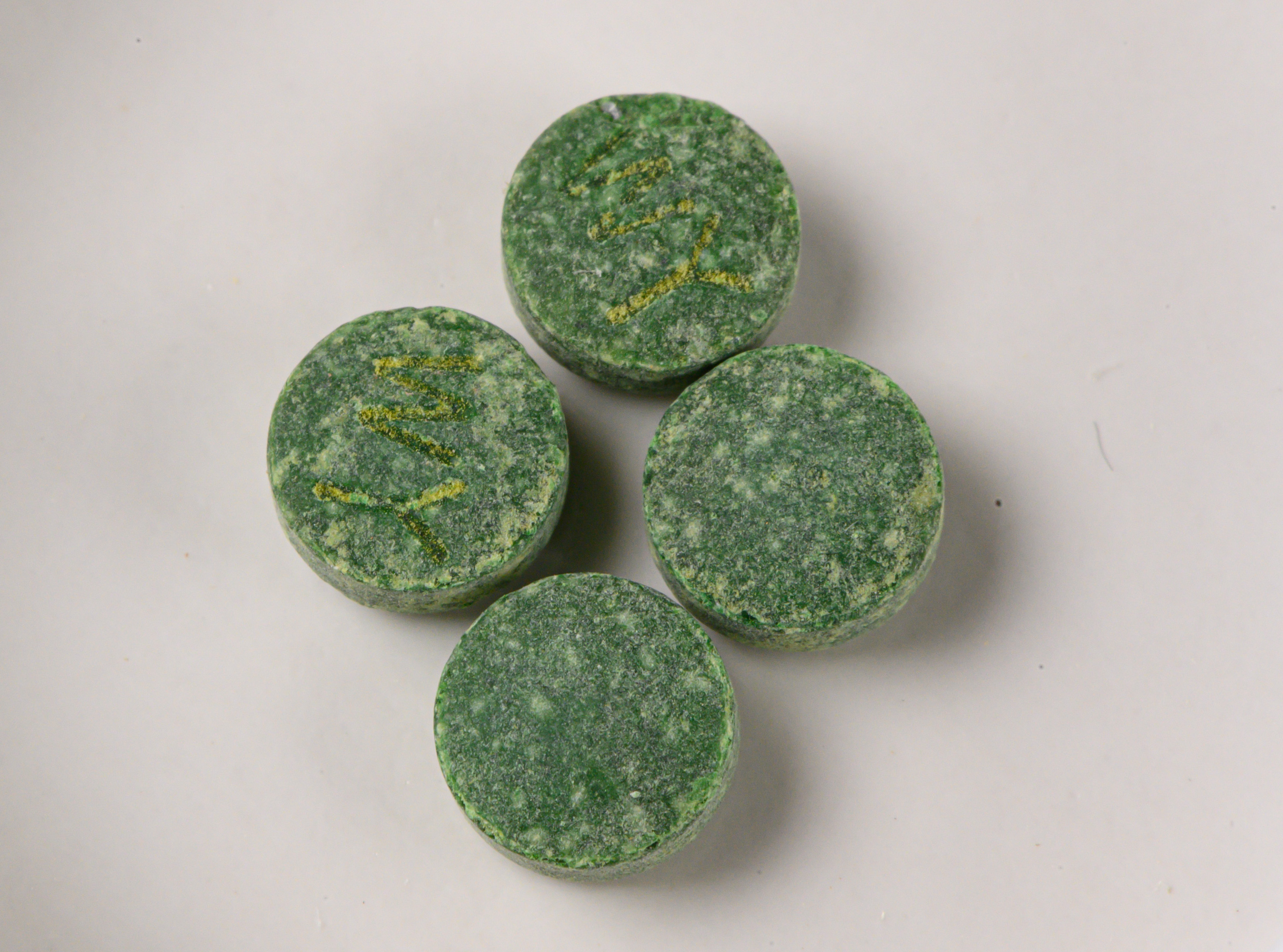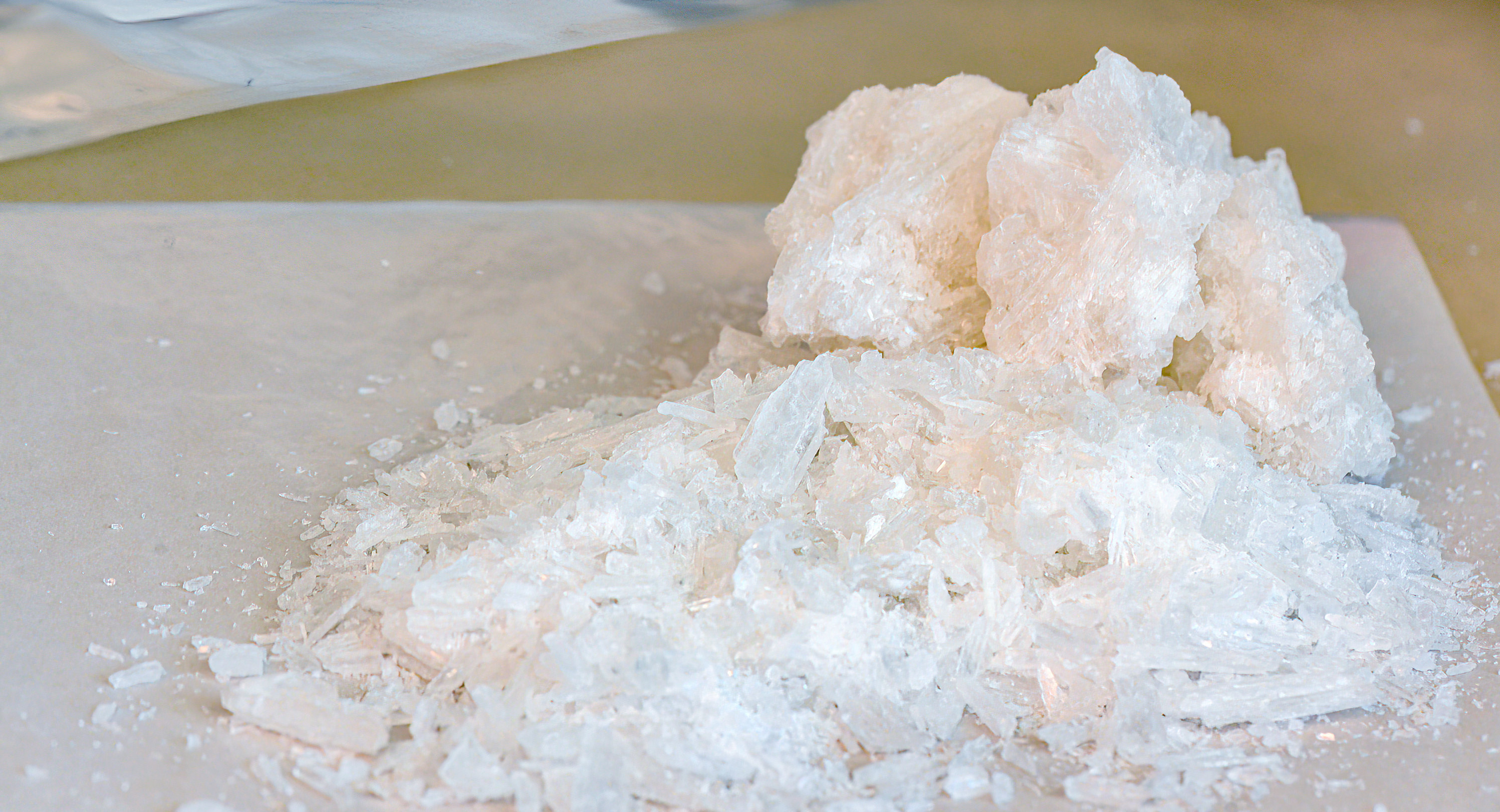Methamphetamine << `MEHTH` am FEHT uh meen >>, sometimes nicknamed “meth,” is a powerful drug that quickly produces feelings of joy, strength, and alertness while decreasing appetite and fatigue. Methamphetamine gives users the capacity to work and talk for long periods. Methamphetamine is one of a group of drugs called amphetamines. Misuse of methamphetamine is dangerous, and the drug can be obtained legally only with a prescription.

Methamphetamine has a few medical uses. It is an important medication for the treatment of attention-deficit/hyperactivity disorder (ADHD). It is sometimes prescribed for weight loss. The drug has also been used to combat fatigue and to help people under stress improve their work. Prescription methamphetamine has been sold under such brand names as Methedrine and Desoxyn. It is taken orally.
Methamphetamine works by dramatically increasing the release of dopamine in the brain. Dopamine is one of a group of chemicals called neurotransmitters, which carry information from one nerve cell to another. Dopamine acts in the brain to influence a wide range of feelings and behaviors, including paying attention, planning, and moving the body.
In time, tolerance to the drug develops, and the user needs larger doses to achieve the same effect. Excess use causes pains in muscles and joints, excessive activity, and overconcentration on minor tasks. Some people become suspicious and develop antisocial behavior. 
Methamphetamine creates a false sense of security among users and leads them to overestimate their abilities. As a result, it can cause them to engage in risky behaviors. People can become physically dependent on methamphetamine and may experience withdrawal symptoms if they stop using the drug. Users may also become mentally dependent and find themselves unable to cope without it. Sudden withdrawal may cause deep depression, fatigue, or even a temporary psychosis (severe mental illness).
Methamphetamine is an especially powerful drug because it is created using only synthetic materials, which are difficult for the body to eliminate. The drug is often made in illegal makeshift “meth labs” from a variety of common household chemicals, such as drain cleaner and certain cold medications containing an ingredient called pseudoephedrine. The process used in such labs, called “cooking,” is dangerous and has a high risk of causing explosions and poisoning. Nicknames for illegal methamphetamine include “crystal,” “ice,” “crank,” and “speed.”
When misused, methamphetamine is taken orally, snorted through the nose, smoked, or injected. Repeated methamphetamine misuse damages the brain cells that produce dopamine and other neurotransmitters, such as serotonin. This damage may eventually reduce the brain’s ability to produce dopamine and can result in mood problems and movement disorders. The drug can cause irreversible damage to blood vessels in the brain, leading to stroke. Use can also cause severe dental decay and tooth loss, known as “meth mouth.” Other dangerous effects of methamphetamine misuse include significant weight loss, an irregular heartbeat, heart attacks, and death.
See also Amphetamine; Drug misuse; Ecstasy.
